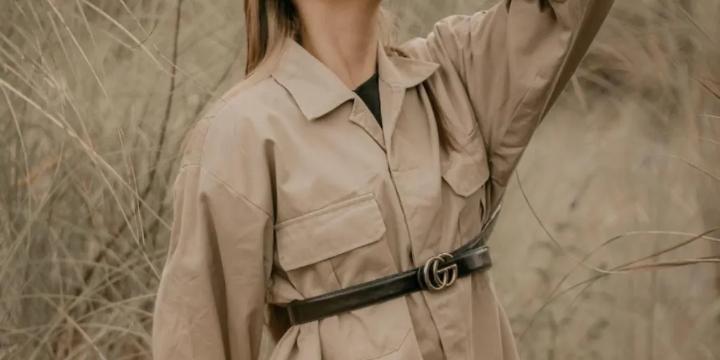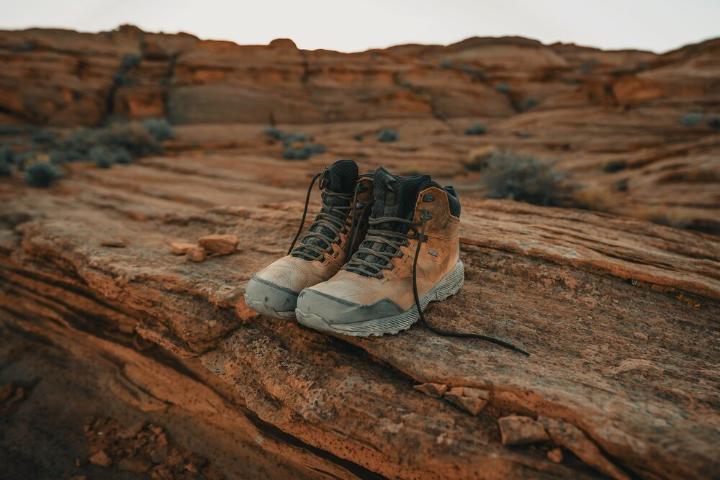Heading into the Serengeti’s bushes or Zanzibar’s beaches calls for well-packed luggage.
Whether you’re thirsty, need insect repellent or sunscreen, or when your binoculars are your only option to spot predator attacks or cuddling lions – your haversack will come in handy almost through the day.
Here’s a complete guide on what you need to pack in your luggage before your Tanzania safari vacation.
Why is a Packing List Important for a Tanzania Safari?
Your packing list before a Tanzania safari ensures you have the correct climate gear and wearable essentials. From clothes suited for chilly mornings and humid evenings to high-quality cameras for capturing once-in-a-lifetime shots, a stocked backpack will keep you ready for all situations.
Beachgoers must pack in beachy clothes like swimsuits and swimming goggles. Hikers planning to visit Ngorongoro Conservation Area or Mt. Kilimanjaro must carry appropriate gear like walking sticks and durable boots. Similarly, safari enthusiasts need toiletries, footwear options, and camera gear.
You’ll need sufficient equipment to adapt to each location, especially since the number of things to do in Tanzania is larger than a two-week trip can accommodate.
Packing for Safari in Tanzania
If you’re wondering what to pack for a safari in Tanzania, here are some must-have essentials when visiting this wildlife hotspot in East Africa:
Clothes
Like most wildlife enthusiasts, you must prioritize function and comfort when packing for a Tanzania safari.
1. Quick-drying, breathable fabrics that can handle dusty setups and are easy to clean.
2. Long-sleeved shirts to protect against sun and insects.
3. Sturdy outdoor pants to resist thorn thorns and brambles.
4. Warm sweater and a lightweight, windproof jacket for cool early morning and late-night drives.
5. Scarf or bandana to protect your neck from the sun and double down as a dust mask.
A good rule of thumb is to pack clothes that can be layered easily. This prepares you to adapt to changing temperatures throughout the day.
Most importantly, pack neutral colour clothes like khaki, semi-brown, olive, and green. You ideally want to avoid packing bright and dark colours for safari expeditions!

Image Credits: Alibaba
Footwear
Choose footwear based on the terrain and activity in mind. For example, game drives and light walks call for lightweight hiking shoes or sturdy trainers.
But pack strong, durable, waterproof hiking boots if you’re going all out on trekking. These designs will keep you safe from blisters. Also, pack a few pairs of thick, durable socks to fight these blisters and keep your feet warm during cold mornings.
Consider carrying sandals or flip-flops for lounging around your lodge or campsite. Additionally, pack in a packet of gorilla shoe glue in case of unexpected tears.

Image Credits: Safari Travel
Sun protection
The equatorial sun in Tanzania can send your head spinning with headaches.
Firstly, you’ll need a wide-brimmed hat to shade your scalp, forehead, face, and front and back neck.
Secondly, purchase sunglasses with high UV protection to safeguard your eyes against harmful, unfiltered sun rays.
Thirdly, you cannot compromise on sunscreen under any circumstances. Choose a broad-spectrum sunscreen with SPF 30 or higher, and ensure it’s sweat-proof and water-resistant. Remember to reapply this product every 2-3 hours to avoid unwanted tans and disturbing sunburns.
Fourthly, lip balm with SPF protection should be carried to prevent chapped lips.
Medications
The African continent is no stranger to untimely ailments. While packing your prescribed medicines is a must, remember to carry additional medicines for potential travel-related illnesses. These include medications for an upset stomach, allergies, cold and cough, etc.
To add, pack in anti-diarrhea medicines to avoid constant visits to the washroom. Also, carry anti-nausea medicine and a mild laxative for bumpy roads.
The best way to tackle allergies are antihistamines. Carry a strip of tablets for a 7-day dose in case you caught an infection.
If you’re prone to motion sickness, consider natural remedies like ginger chews, especially for long drives on winding roads.
Insect Repellants
When you travel to Africa, you cannot ignore the threat of Malaria. Tried and tested insect repellent brands will keep you safe. Products containing at least 30-50% DEET are the most effective. For extra safety, purchase an EPA-registered insect repellent.
Pack a lightweight mosquito net for your sleep time. This is a smart idea if you aren’t sure of the accommodation’s provisions. You may also consider clothing treated with permethrin for added protection.
Lastly, it’s practical to wear light-coloured clothing. Dark colours attract tsetse flies, which are common in some Tanzanian parks.
Camera, Binoculars, and Travel Tech Gadgets
Every wildlife enthusiast wants to capture the thrilling sights of animal movements in the savannahs, open plains, and forests. Be it a leopard or hyena slicing through animal meat, you want a high zoom capability in your camera to photograph wildlife events in real-time.
Additional camera gear like lenses, protective bags, cleaning kits, and tripods may help depending on your photographic ambition.
Don’t forget to pack binoculars with a magnification of at least 8×42 for wildlife viewing. This equipment lets you spot distant wildlife activity with the feeling of being in close quarters.
If you carry tech gadgets, consider solar chargers or extra battery packs. This helps if you’re spending several days in remote areas.

Image Credits: Space
Toiletries
When packing for a safari in Tanzania, prioritize sustainability and eco-friendliness. Even when packing your toiletries, remember that your environmental footprint must be minimal.
Several safari campsites have septic systems susceptible to harsh chemicals. To conserve these systems, you can use biodegradable soap, shampoo, and laundry detergent.
Remember to pack practical items like a quick-dry towel, toothbrush, and a high-quality, unscented deodorant.
Also, women must pack extra sanitary products for the safari adventure as these items aren’t usually available in remote African areas.
Medical Aid
This medical kit covers more injuries than illnesses.
Pack in everything from antiseptic wipes or creams to bandages, sterile gauze, adhesive tape, and an extra pair of sterile gloves.
Here are some extra essentials to carry in your medical aid kit:
1. Pain relievers
2. Anti-inflammatory drugs
3. Hydrocortisone cream for minor injuries
4. Tweezers for thorns or ticks
5. Snake bite kit for remote areas
Other Important Stuff if Necessary
Consider packing these extra essentials to come fully prepared for a Tanzania safari:
1. Waterproof cover to protect your daypack against sudden downpours
2. Detailed map of the parks you’re visiting
3. International sim card and offline maps
4. Solar charger
5. Personal safety items like whistles, headlamps, and small locks
6. Local language phrasebook to bridge communication gaps
7. Binoculars strap to reduce neck strain
8. Compact multi-tool for unexpected repairs
Documentation and Money Essentials
Travelling to Tanzania for a safari requires all necessary documentation to be organized and easily accessible. Here are some essentials:
Passport and Visa
Ensure your passport is valid for at least six months before your intended departure date from Tanzania.
In the case of visas, most travellers require one to enter Tanzania. You can obtain it in advance through an embassy or consulate or upon arrival at major airports and border crossings. Note that the visa-on-arrival process can be time-consuming. Thus, consider securing a visa beforehand.
Tip: Carry a photocopy or digital copy of your passport and visa separately.

Image Credits: Paytm
Credit and Debit Cards
Credit and debit cards are widely accepted in major tourist areas in Tanzania. Though less common in remote safari camps or smaller towns, it’s advisable to carry cards from global providers like Visa or MasterCard.
Inform your bank of your travel plan to avoid any chance of potential blockage due to unusual activity.
It wouldn’t hurt to carry a few hundred dollars in cash. We recommend dollars since they are accepted around Africa and are easily exchangeable. Remember to keep smaller denominations for tips and small purchases.

Image Credits: Times Now
Emergency Contact Information
Maintain a list of emergency contacts, including local emergency services in Tanzania. Save the contact details of the nearest embassy or consulate of your country. Additionally, keep some personal emergency contacts handy.
Share this information with your relatives and friends back home. For extra security in case of theft, include a copy of your itinerary and travel insurance details.
Last but not least, save the contact information of your local tour operator and accommodation provider in Tanzania. This step ensures that all your emergencies are coordinated and that the relevant assistance arrives on time.
Safari Equipment and Accessories
Now we know the basics of what to carry to Tanzania when visiting for a wildlife viewing expedition. Here are a few guidelines for safari equipment and accessories in specific:
For Safari Vehicles
Your safari vehicle is typically open-sided or will have pop-up roofs for optimal viewing. You must pack compactly since these vehicles often have limited space.
Bring a small daypack or camera bag that comfortably fits between your feet or on your lap. Only pack primary essentials like binoculars, cameras, extra batteries, and your water bottle. This is enough to ensure you digest a plethora of wildlife events on your Tanzania safari.
Not to forget, safari drives can be dusty. Do keep a light scarf and sunglasses handy.
Finally, if you’re the one to get cranky on bumpy roads, carry a small cushioned pillow!

Image Credits: TOI
Reusable water bottle
Staying hydrated will guarantee you don’t feel much exhaustion in Tanzania’s hot and dry climatic conditions. What you need is a premium, insulated, and reusable water bottle that keeps your liquids cool.
Most safari lodges and camps offer purified water refill stations to cut down plastic usage. Get into the habit of refilling your bottle before safari drives. This way, you’ll avoid single-use plastics and support environmental conservation habits.
Electrical adapter
Note that safari campsites and lodges in Tanzania use Type D and G electrical outlets. Bring a universal travel adaptor with multiple plug options that work for charging cameras, smartphones, laptops, etc.
Keep in mind, power outlets can be scarce in some camps. Consider packing a power strip to charge multiple devices with one outlet.
When to go on a Safari in Tanzania
You can choose from the high, shoulder, or low seasons when visiting a safari in Tanzania. The high season is from June to October and presents the renowned Great Migration in full flow. While this is a great time to visit the Serengeti and Ngorongoro Crater, the low season’s heavy rainfall and vibrant greenlands may suit the adventurous kind.
For those wildlife lovers looking for a mix of rainfall, sunny days, and the initial stages of blooming greenery–the shoulder season is perfect.
We’ve assembled a complete guide on the best time to visit Tanzania for a safari.
Key Takeaways
In case you forget to carry any of the above essentials, our guides and operators will try to cover your back!
Nonetheless, Tanzanian safaris are an experience where each sighting reveals the fight for survival. We offer personalized safaris into the animal kingdom in Tanzania’s national parks and wildlife reserves.
These regions hold UNESCO World Heritage sites in the lap of wildlife and the local stories of Maasai cultures! Are you ready to book a safari to Tanzania today?


